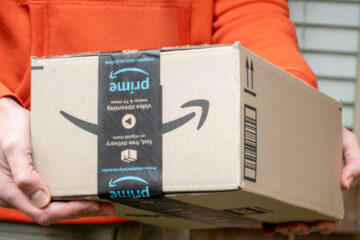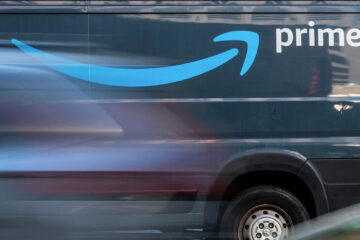Stock up the eggnog — you’re gonna need it.
The holidays are here and that means joy to the world, coming together with your loved ones and spending a ton of money on gifts.
Related: Fed inflation gauge ticked higher in October amid consumer spending boost
This is the most important time of the year for retailers, given the spike in consumer spending. Holiday shopping is crucial for the chains’ overall sales.
The National Retail Federation expects holiday sales to grow between 2.5% and 3.5% from a year earlier, to a total of $980 billion from $955 billion.
The forecast includes e-commerce, which is expected to grow 8% to 9%, totaling between $295 billion and $300 billion.
🚨Don’t Miss this amazing Black Friday Move! Get 60% off TheStreet Pro. Act now before it’s gone 😲
“I am optimistic about the pace of economic activity in the final quarter of the year,” Jack Kleinhenz, the trade group’s chief economist, said.
“Given third-quarter spending performance and comprehensive upward revisions in late September for income, spending and the savings rate, I have increased confidence in the economy’s strength and the near-term outlook,” he added.
Americans voted to send Donald Trump back to the White House in January. The president-elect wasted no time in rattling a few cages when he vowed to impose a 25% tax on all imports from Mexico and Canada, along with an additional 10% tax on imports from China.
Several retailers recently released their quarterly results and investment firms have been adjusting their ratings and stock prices accordingly.
Shoppers arrive at a Kohl’s Corp. department store.
Kohl’s CEO says results were disappointing
Kohl’s (KSS) started the holidays off on a sour note, as the department-store chain missed Wall Street’s fiscal-third-quarter earnings expectations, lowered its full-year guidance and said CEO Tom Kingsbury would step down as of Jan. 15.
Kohl’s shares are down 45% this year and off nearly 32% from a year ago.
Related: Home Depot stock leaps after Q3 earnings, 2024 forecast
Kingsbury spoke bluntly to analysts about the results during the company’s earnings call.
“They did not meet our expectations and were frankly disappointing,” Kingsbury said. “Sales have been a challenge for us throughout 2024 and weakened further in Q3. Over the last several quarters, we have implemented a significant amount of change across our assortment, value strategies, and in-store experience.”
Kingsbury, who was president and CEO of Burlington Stores (BURL) from 2008 to 2018, said Kohl’s leadership believed these actions would make the company more competitive in the long term, But he added that “we undervalued the short-term impact this change could have on our sales performance.”
“We are not satisfied with our performance and are taking aggressive action to reverse the sales declines,” he said.
Kingsbury was the company’s interim CEO starting in late 2022, succeeding former CEO Michelle Gass, who took the helm at Levi Strauss (LEVI) in November 2022. He became permanent CEO in early 2023.
Ashley Buchanan will take over as CEO effective Jan.15. Buchanan has been CEO of arts and crafts retailer Michaels since 2020; prior to that post she held senior executive roles at Walmart (WMT) and the retail giant’s membership warehouse chain Sam’s Club during her 13 years at the company.
Kingsbury will stay on in an advisory role and remain a director through his retirement in May.
Baird downgrades Kohl’s to neutral
Baird downgraded Kohl’s to neutral from outperform with a price target of $18, down from $25, according to The Fly.
The investment firm said that a number of issues reduce its conviction in the value case for KSS shares: ongoing pressure in Kohl’s core apparel and footwear business, implying share losses during the back-to-school period; greater comparables volatility as management iterates on changes to the operating model, and the pending change of CEO.
Baird analysts see opportunity for comparisons and margins to stabilize and improve as changes take hold, but with the timeline uncertain amid intense competition, the stock’s risk/reward balance appears even today.
Bank of America Securities analyst Lorraine Hutchinson cut the firm’s price target on Kohl’s to $15 from $18 and affirmed an underperform rating on the shares.
Related: Billionaire Bill Ackman makes big bet on major consumer stock
The move came after management cut fiscal 2024 guidance for sales, comparable sales, operating margin and EPS to reflect continued challenges in the core business and expectations for a highly competitive holiday.
Hutchinson also noted the new CEO announcement and while she says Buchanan’s customer-facing expertise from Michaels should provide value, the analyst expects many of Kohl’s core challenges to remain.
Burlington: Holiday sales started strong
Burlington Stores reported higher sales in the latest quarter and said the holiday selling season has started strong.
Total sales increased 11% in the fiscal third quarter on top of 12% sales growth last year, CEO Michael O’Sullivan said.
“The major driver of this growth is our new-store opening program,” O’Sullivan told analysts. “We continue to be very pleased with the performance of our new stores, and we are excited by the strength of our new-store pipeline.”
The executive said that the company’s back-to-school sales dropped significantly due to temperatures having been much warmer than they were a year earlier.
Related: Veteran fund manager issues dire warning on stocks
“Unseasonably warm temperatures do not just impact the [comparable] sales trend for cold-weather merchandise,” O’Sullivan said. “They’re also a drag on overall traffic coming into the store, which affects every business. Anyway, even leaving aside this additional point, we are very encouraged with our underlying comp sales trend.”
B of A’s Hutchinson raised the investment firm’s price target on Burlington Stores to $350 from $315 and reiterated a buy rating on the shares.
Warm weather and hurricanes hurt Q3 comparable sales at Burlington. But the investment firm models fiscal 2024 sales growth of 8%, driven by a 2.5% comparable and an outsized benefit from productive new stores, adding that Burlington has “outsized sales and margin recovery opportunities.”
Evercore ISI raised the firm’s price target on Burlington Stores to $340 from $315 and kept an outperform rating on the shares.
More Retail Stocks:
Forget Caitlin Clark, Adidas banks on a new basketball phenomPopular handbag brand makes big announcement about futureAmazon unveils new service to compete with Temu
Even with outsized weather exposure, Burlington stayed within same-store sales guidance and managed the profit and loss statement well. That’s despite what Evercore says was “the biggest intraquarter peak-to-trough same-store-sales deceleration the off-pricers have seen in years” in Q3.
While weather was slightly worse than expected in Q3, the firm said it sees no change to the long-term story and doesn’t think comparable sales in a quarter with severe weather headwinds are “a true indicator of the progress being made to sustain competitive off-price comps and with relatively strong margin performance.”
Best Buy misses on revenue in Q3
Best Buy (BBY) missed Wall Street’s third-quarter revenue expectations and cut its full-year sales forecast.
The company’s shares are up nearly 14% year-to-date and up 28% from a year ago.
“Our sales performance was impacted by overall softer-than-forecasted customer demand during September and October,” CEO Corie Sue Barry told analysts during the company’s earnings call.
“We attribute this to a combination of overall ongoing macro uncertainty, customers waiting for deals and sales, and distraction during the runup to the election, particularly in nonessential categories.”
Related: Warren Buffett just sold 3 massively popular stocks
Barry said the electronics retailer had expected lower demand between sales, “but the impact was even steeper than we estimated.”
“In the last few weeks, as the holiday sales begun and the election is behind us, we have seen customer demand increase again,” she said. “From a category perspective, we drove comparable sales growth in computing, tablets, and services.”
Loop Capital analyst Anthony Chukumba lowered the investment firm’s price target on Best Buy to $100 from $110 while maintaining a buy rating on the shares.
Best Buy’s Q3 results came up short of the firm’s expectations, driven by a disappointing revenue line, but the analyst said he was encouraged by the strong start to the holiday selling season and says management’s Q4 guidance could end up being conservative.
At the same time, Chukumba said, Best Buy stock is likely to have a significant overhang until the market receives more clarity on Trump administration tariffs since roughly 60% of the company’s costs of goods sold are sourced from China. Cost of goods sold refer to the direct costs of goods a company sells.
Truist lowered the firm’s price target on Best Buy to $95 from $107 and affirmed a hold rating on the shares.
Best Buy’s Q3 sales and EPS were modestly below the firm’s estimates, but margins were solid, and patterns suggest that consumers continue to seek “value” during events with deeper lulls in between, the firm told investors in a research note.
While there have been some “green shoots,” like positive mid-single-digit-percent comparables in laptops and tablets, and artificial intelligence could provide an incremental lever, natural demand trends have yet to really inflect even after 12 quarters of negative comparables, Truist said.
Related: Veteran fund manager sees world of pain coming for stocks


